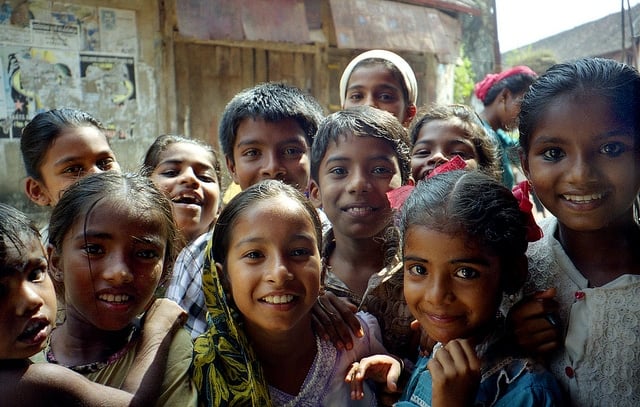
by Melanie Oda (Japan) | Jan 8, 2015 | 2014, Awareness, Child Care, Childhood, Culture, Domesticity, Education, Expat Life, Eye on Culture, Family, Feminism, Grandparent, Home, Husband, International, Japan, Life, Life Lesson, Living Abroad, Marriage, Me-Time, Motherhood, Multicultural, Parent Care, Parenting, Priorities, Relationships, Responsibility, School, Social Equality, Womanhood, Women's Rights, World Motherhood, Younger Children
 Gender equality has been in the news quite a bit in Japan recently, sort of, and some things have happened closer to home that have me thinking.
Gender equality has been in the news quite a bit in Japan recently, sort of, and some things have happened closer to home that have me thinking.
It started when a (female) Tokyo assembly member was heckled in a sexist way. Then Prime Minister Abe introduced some new policies to let women “shine.” (He needs to get them doing something for the economy.) He even appointed several women to cabinet posts, for about five minutes, until they were slapped back down into their places over minor scandals.
In Japan, people are talking more about issues women face but no one seems to be doing much about them.
(Lest I forget: strangely enough, the declining birth rate is treated as a “women’s issue.” I seem to remember my husband being involved, too.)
I never considered myself a feminist growing up. Some members of the evangelical, conservative community I grew up in doubtless felt “feminist” was a new version of the “F-word.”
OK, so I went to a high school with more sports options for boys than girls. And yes, girls were encouraged to take chorus and home economics instead of woodworking or mechanics. So maybe I heard men from my community refer to grown women as “broads” or “gals.” There also were some restrictions at church regarding women’s and men’s roles. But I never felt that possessing certain types of baby-making parts limited my potential.
Then I moved to Japan, where gender roles are more firmly entrenched and my way of thinking slowly changed.
As I get older, and because I am a mother, I find that I am limited in ways that I couldn’t have foreseen as a young girl.
Some people may find life here in Japan freeing. If you aspire to be a homemaker a la Martha Stewart, then your life’s work would be very much respected and appreciated here. My husband wouldn’t bat an eyelid if he came home to a messy house because I’d spent the day at a preschool mothers’ lunch. He knows that is part of the job (on the other hand, it would never occur to him to pick up the mess himself.)
If, as a woman, you have other aspirations, Japanese culture seems designed to work against you. The glass ceiling is very much in tact. On the news here you do hear issues like lack of childcare and “maternity harassment” being addressed. But what gets talked about less often is that to many women, including myself, it feels as if there’s a glass door as well.
It’s my front door.
Before a woman can even think about what is facing her out in the world, she needs to address the forces that are keeping her at home. Some of these are practical, some are logistical, some are cultural and perhaps peculiar to Japan and it’s work culture.
For me, it starts with my husband: He leaves home at 7am every morning, but I have no idea what time he will be back. Sometimes it’s 7pm. Sometimes it’s midnight. He may be in the office that day, or he may suddenly be sent to another prefecture. He’s made international trips on 12 hours notice. I cannot depend on him being home at a designated time, by no fault of his own. The idea of him taking time off with a sick child is preposterous in the extreme.
I have been lucky enough to have two job offers recently, both of which would be more or less during school hours, but neither is nearby. If a child were to get sick and need picking up, or if god-forbid there was a natural disaster (which is always in the back of your mind if you are a mother in Japan,) then my husband would be closer. I mentioned that, and he completely shot me down. Not just the idea of him picking up the kids in case of an emergency, but the idea of a job anywhere outside of cycling distance from the school.
We live in a residential neighborhood. I patch together some part-time work here and there, but it’s not like there are loads of professional opportunities in a two kilometer radius.
I suddenly felt very limited, penned in, in a way I haven’t felt before. The glass door was slamming in my face.
I don’t think I’m alone in this conundrum. Go to almost any supermarket in a residential area during the day, and you will see women in their prime working years manning the register. Many of these women have university degrees. Many have licenses and qualifications to be doing other kinds of work, but they want to stay close to home. They also need salaries to stay under $10,000 year or face a peculiar Japanese tax code and insurance system that penalizes families where both partners have incomes over that amount.
Then there are my kids: Like 2/3 of Japanese women with children under 6, I stayed home when they were small. They now completely depend on me for everything. It seems to have never entered their minds that someone else could give them a bath or help them find their missing socks, mostly because no one else has ever done anything for them. Especially when they are sick, they want only me. It was very hard when my daughter was in the hospital, both children wanting to be with me and emphatic that no one else would do.
But now my youngest is in elementary school, and I would like to just be doing more of something….else, but for me to plunge into the workforce would be a huge adjustment for my children. Is it worth the stress? Can we survive what is sure to be a painful adjustment period?
Maybe if I had more family support, it would feel less impossible but as it is, it seems like everyone is against me.
Which brings me to the final characters in this comedy, my in-laws: They say they’ll watch the kids, then they change their minds. Or something better comes up. From their point of view, this house and these people are completely my responsibility. Anything they do is extra credit.
To be honest, we’re getting to the point where my in-laws need my help more than I need theirs.
They aren’t shy about letting me know my place.
One day not too long ago, my son was playing at the park with his friends. It was getting close to homework time, so I called him and told him to come home. He said he was playing with Jiji (which is an endearing term for grandfather used in our region of Japan,) and could he play for a bit longer? Since he was out with an adult, I said okay.
The next day, I got a verbal whipping from my father-in-law over the phone, accusing me of being irresponsible, a bad mother. It took me a few minutes to understand why he was saying this, but when I got to the bottom of it, I realized my son had lied to me. He was playing with his friends when Jiji walked by and told him to go home. My son told him I wasn’t at home and said he couldn’t come back until I did. (I must have called right at this point.) “How dare you not be home in the afternoon?” said Jiji.
Putting aside that none of this nonsense was true, so what if I wasn’t home in the afternoon? Of course I wouldn’t have left the kids to wander the neighborhood like stray dogs, but why was my not physically being inside my house such an issue to him? His assumption that it was my duty to be always available to everyone took me by surprise.
I could almost hear the glass door slamming again.
There are also other barriers for women in Japan—an over active PTA for one, and a myriad of community responsibilities attended to exclusively by women for another. I imagine most women in the world encounter both the “glass door” and the “glass ceiling” in some form or another, but in Japan only one of these factors is seems to be getting much attention. Building new daycare facilities isn’t enough; the government stating goals to increase women’s participation in the workforce isn’t enough. Until we do something about that glass door, nothing will change for one of the best educated, least utilized group of women in the world.
Do you feel you are fulfilling your potential, both at work and at home? What’s the situation like in your country?
This is an original post for World Moms Blog from our writer and mother of two in Japan, Melanie Oda.
If you ask Melanie Oda where she is from, she will answer "Georgia." (Unless you ask her in Japanese. Then she will say "America.") It sounds nice, and it's a one-word answer, which is what most people expect. The truth is more complex. She moved around several small towns in the south growing up. Such is life when your father is a Southern Baptist preacher of the hellfire and brimstone variety.
She came to Japan in 2000 as an assistant language teacher, and has never managed to leave. She currently resides in Yokohama, on the outskirts of Tokyo (but please don't tell anyone she described it that way! Citizens of Yokohama have a lot of pride). No one is more surprised to find her here, married to a Japanese man and with two bilingual children (aged four and seven), than herself. And possibly her mother.
You can read more about her misadventures in Asia on her blog, HamakkoMommy.
More Posts

by World Moms Blog | Aug 28, 2014 | 2014, Awareness, Being Thankful, Childhood, Cultural Differences, Culture, Domesticity, Education, Eye on Culture, Family, Grandparent, Guest Post, Home, India, International, Kids, Life Lesson, Motherhood, Nutrition, Parenting, Relationships, Traditions, World Motherhood, Younger Children
 Motherhood is one of the most beautiful experiences of a woman’s life. Raising children makes life full. I am raising my children in India and I feel that the environment in India helps a lot in inculcating a strong set of values.
Motherhood is one of the most beautiful experiences of a woman’s life. Raising children makes life full. I am raising my children in India and I feel that the environment in India helps a lot in inculcating a strong set of values.
I read a lot about the many ways children are raised in various parts of the vast Indian subcontinent. Here are some of the enriching reasons I find raising a child in India so wonderful:
1. Family Help: India is a country where the joint family system is prevalent. Children grow up having a lot of fun surrounded by generations of Grandparents, Uncles, Aunts and Cousins. This helps the child in her personal growth and instills great concepts like teamwork and adjusting to different kinds of people, with different mindsets. It also helps a child understand how to receive and give unconditional love.
Sadly, the joint family is breaking up nowadays and giving way to nuclear families. The nuclear family comprises of just the husband, wife and children. Sometimes, the husband’s parents come to stay. This helps build a strong bond between the children and the grand parents, which should be encouraged. The child will learn to respect traditional values which are an integral part of the Indian social fabric.
2. Learning to Respect Your Elders: Indian children are taught to respect their elders and extended family at a young age. Being around so many family members, children learn to show respect and love to one and all when they grow up. Some communities in India make it compulsory for the young people to touch the feet of the elders as the mark of reverence.
This custom is rarely found in any other culture across the world. This custom is instilled in the child’s mind from a very young age and it becomes second nature. This custom hasn’t changed even after western ideas and practices stealthily crept into India.
3. Kids Are Taught How to Save: Children in India are taught to save and not spend unnecessarily. Due to the conservative economy, Indian children learn at a very young age to prioritise their expenses. They learn to buy things which will give them value for money.
Nowadays many banks offer the option to open minor accounts for very small children. Instead of having children save their pocket money in piggy banks, they can save it in real banks. This teaches the child banking procedures at a very early age. Children can even maintain a separate copy for calculating the total expenditure. This will teach the child that it is not good to waste money.
4. Family Values: Children are inculcated with strong family values as they grow up among numerous family members. These family values help develop strong moral fiber. In the long run, they help in creating a strong personality which helps in their growth.
5. Character Development: Character defines how the child leads a holistic life. Parents in India work hard on character building for their child. Since all parents’ desire that their child grows up to become an honest and good human being.
6. Spiritual Discipline: Indian children are raised with enormous spiritual discipline. India is the land for spiritual growth and developing the spiritual qualities in a child helps him/her grow up to be a better individual. Children are taught about the importance of religion and customs. They are also taught to respect other religions as well, since the common idea of all religion is to achieve peace, moral strength and happiness.
7. Freedom When They Play: There is no requirement for an organized play time. A child will always find a group of children playing outside his house. So they can always find fun. They can step out any moment and experience a joyous playtime. Open spaces or children’s parks are still there and are not encroached by developmental activities and high rises.
8. Sharing and Caring: There is a lot of sibling bonding in Indian families. Parents teach children tolerance towards each other, love and patience. By sharing and caring for each other, this turns them into well-adjusted human beings.
9. Celebrating Traditions: India has one of the richest cultures which dates back more than 5000 years. So India is a land of festival and colors, cliché as it may sound, it is true. These celebrations are elaborate. All the kids are involved in the celebration of the festivals with the other children in the community. The children celebrate the festivals with their families and extended families.
10. Healthy Eating Habits: Emphasis is laid on eating healthy food. Children are allowed to eat junk food once in a while, but mothers cook at home. They are happy to feed the children with home cooked food. This makes the child health conscious. Mothers teach their children to choose healthy fresh fruits and vegetables. This also increases their knowledge about what is good for them.
The above stated facts hold true for a small portion of the Indian population, as the phrase goes ‘the privileged few’. Economically, India has progressed considerably in the last 60 years. The bigger picture, however, is quite different: a farmer hangs himself from a tree because he cannot provide for his family; a child is shunned from temples and public places due to his lower caste label; the rampant poverty in villages and lack of health amenities lead to reduced life expectancy; more children are seen carrying bricks and working in factories than in classrooms. These are children who don’t have access to formal education at all.
But for increasingly more kids, growing up in India is a blissful experience which helps them develop into amazing individuals. The calmness of spirit and the enriching environment in India is what gives these children an opportunity to explore life and themselves. The liveliness of the child is based on the amazing cultural forum that the Indian child inherits.
In contrast, malnourished children peddle the streets and somehow make a living. They are deprived of things that my child claims as basic rights. We have small children selling chai when they should be drinking a warm glass of milk instead. Yet from children like these, a leader has emerged – Narendra Modi. The contradictions and ironies of my country keep me enthralled. I trudge forward in earnest hope that my child will triumph in all spheres of her life.
Also, the technological development and fast paced life have made us so busy that we are finding less and less time for each other but still Indians never forget to smile at one another. Children brought up in India will never lose heart, since they have learned to struggle and attain victory in all fields of life. But to make that happen, we need to remember the wisdom Dr. Seuss imparted:
“Unless someone like you cares a whole awful lot, nothing is going to get better. It’s not.” — The Lorax
The image used in this post is credited to Ryan Ready. It holds a Flickr Creative Commons attribution license.
This is a first-time, guest post from Aradhana, a mother in India. Aradhana also is a passionate writer, who focuses on topics like yoga, wellness, health and lifestyle. She has contributed posts to Natural News, Wiki How, MomJunction, and Elephant Journal. Through her writings, she hopes to motivate people to develop healthy habits and adopt natural ways of living to achieve sound health.
World Moms Blog is an award winning website which writes from over 30 countries on the topics of motherhood, culture, human rights and social good. Over 70 international contributors share their stories from around the globe, bonded by the common thread of motherhood and wanting a better world for their children.
World Moms Blog was listed by Forbes Woman as one of the "Best 100 Websites for Women 2012 & 2013" and also called a "must read" by the NY Times Motherlode in 2013. Our Senior Editor in India, Purnima Ramakrishnan, was awarded the BlogHer International Activist Award in 2013.
More Posts

by World Moms Blog | Jul 22, 2014 | 2014, Family, Grandparent, Greece, Guest Post

The Super Greek Gran of this story is pictured above.
The greatest invention EVER!!!
I hope that all you moms out there are coping with and even ENJOYING your summer vacation! Having kids at home all day and every day can be challenging even for the most organized, and creative of us, especially if we also have to work outside the home.
Do you have help with feeding, entertaining, and generally nurturing your offspring?
I wonder how many of you busy multi-taskers are as blessed and fortunate as I am to have a super-soulmate, super efficient ma-in-law to LITERALLY pick me up when I’m down and totally out of action…and yes, I did say
Mother-in-law.
I have been bedridden for a while and in excruciating pain due to 3 herniated discs on my spine which have plagued me for years. Yiayia (Greek for grandma) makes sure that I have priority in getting meals and having clean clothes, then gets to work doing the same for my hubby and two teenage sons. She makes mouth watering traditional Greek pies and delish soups, so believe me, it’s almost worth suffering flat on my back so that she makes her culinary delights for us!
It’s hard to believe she was born with a severe physical disability and has undergone a series of operations over the years on her legs and hips. Although she can only walk with the aid of crutches, her doctors say that it’s a miracle she is mobile at all! At 83 years old, I truly admre her abilities and her absolute dedication to her three children and their families. The great news is that she is typical of women from her culture and generation.
In Greece, Yiayia is greatly respected and in many households a godsend for working moms. Having a hot meal on the table when your tired daughter/daughter-in-law gets back from work is an example of what Greek grannies consider their duty. Believe me, these ladies REALLY know how to cook!!! Imagine the quality of food our offspring are getting as no Greek from this generation puts takeaway or prepacked food on the table. This would be an outrage! Only dishes based on the Mediterranean diet, passed down from generation to generation are considered good enough for nurturing a healthy family. Really great, right? So, even if at times you might not see eye to eye with the older members of your clan-Greeks are exceptionally clannish-then try to remember that goodwill, especially towards your mother-in-law, has more benefits than negative aspects!
I know that in most cultures around the globe the mother/daughter-in-law dynamic is considered to be one of the trickiest and sticky to manoeuvre.
Haven’t you ever felt at some point in your relationship with the in-laws that a fistful of Prozac or a bowl full of magic mushrooms would be a blessed relief?
Come on now-be honest!
More often than not one or both women feel a need to have the upper hand when competing for the attentions of hubby/son as well as children/grandchildren. At least in the beginning of the relationship with our new partner things can be pretty tumultuous until the boundaries and expectations are (hopefully) worked out.
My relationship with my Greek in-laws was definitely tumultuous when I first came to live in the family home 16 years ago! My husbands father was certainly NOT pleased when his boy came home with the XENI NIFI or foreign bride!!! Remember that great comedy; MY BIG FAT GREEK WEDDING ?
That wasn’t a comedy for me but MY LIFE!!!
It’s truly staggering how my relationship with my (now) beloved ma-in-law has progressed over the last one and a half decades! These days I think of Grandma Vasiliki as my own mother who ALWAYS supports me if I have a disagreement with her son. My poor hubby is pretty fed up hearing from his own mother that I’m more practical and wiser than he is (even if it IS true) and therefore I should have the final say in any major family decision making! I sometimes wonder if he rues the day he brought me to live in the family home. After all, the two women who are closest to him have become loving allies and so he can’t get away with anything. AT ALL! There are two sets of beady eyes constantly watching him…sound a little spooky? Well, I’m more than half Greek myself nowadays and I can tell you most Greek families really DO tend to live in each others pockets! I was actually born in the UK but such close proximity and familiarity would be considered very claustrophobic there. In Greece however, every family member feels they have a right to express an opinion about all things great and small, whether it concerns them directly or not! Usually Yiayia has the final pearl of wisdom to share…and more often than not is the wisest of all.
My husband has a great saying in Greek we use when we need a babysitter, cook, housekeeper or a shoulder to cry on. I find it hilarious although it loses something in translation;
“Greek Super Grans- the greatest invention EVER!”
Do you have a mom or mother-in-law to help out when things are tough?
Would you like someone to be this close to you and your family, or would you consider it too interfering and claustrophobic in your culture/part of the world?
What types of behavior would you find acceptable or not acceptable from a grandma?
Enjoy the rest of your vacation wherever in the world you may be!
This is a guest post by Ann Marie Wraight who lives in Greece.
World Moms Blog is an award winning website which writes from over 30 countries on the topics of motherhood, culture, human rights and social good. Over 70 international contributors share their stories from around the globe, bonded by the common thread of motherhood and wanting a better world for their children.
World Moms Blog was listed by Forbes Woman as one of the "Best 100 Websites for Women 2012 & 2013" and also called a "must read" by the NY Times Motherlode in 2013. Our Senior Editor in India, Purnima Ramakrishnan, was awarded the BlogHer International Activist Award in 2013.
More Posts

by Fiona Biedermann (Australia) | Dec 16, 2013 | 2013, Being Thankful, Childhood, Domesticity, Grandparent, Kids, Life Balance, Life Lesson, Me-Time, Oceania, Older Children, Parenting, Pregnancy, Siblings, Sleep, Sleep and Children, Womanhood, Working Mother, World Motherhood
 Twenty five years ago today I became a mother for the first time. In some ways it feels like a lifetime ago and in some ways it feels like only yesterday that I was gazing at the face of my oldest son, in both awestruck wonder and sheer terror.
Twenty five years ago today I became a mother for the first time. In some ways it feels like a lifetime ago and in some ways it feels like only yesterday that I was gazing at the face of my oldest son, in both awestruck wonder and sheer terror.
I was seventeen years old and I thought I knew it all, as only a teenager can believe. How wrong I was.
Motherhood is the biggest learning curve any woman can embark on and there is no right or wrong. If you love your child, can keep him safe from any major harm and bring him up to be a halfway decent human being, than I think you’re doing alright.
Then again, sometimes all the right parental steps in the world can’t prevent what life throws at us or what our children become.
The thing is, in my case, if I were to do the motherhood thing over again, I’m not sure that there’s a whole lot I would do differently. Although given a chance, I probably wouldn’t be quite so hard on myself and I’d probably take a little bit more time out for me.
As a young mother I felt like I was constantly having to prove myself, I had to try just a little bit harder, put in a just a little bit more effort, complain a little bit less – basically just suck it up and get on with the job of being a mum to prove everyone wrong.
I was my own toughest critic and at times I could beat myself up better than anyone else about how I was failing as a mother.
The truth is, I wasn’t failing as a mother, and I never did. One of my son’s girlfriends once told me how terrified she was that she wouldn’t be a good mum. I told her the very fact that she was worried that she wouldn’t be meant that she would be fine.
As a mother, you do the best you can with what you have.
I believe that no-one can say what is right or wrong about motherhood. Breast fed baby or bottle fed baby, working mum versus stay-at-home-mum. How we raise our children is our choice and that is what contributes to a world full of people with different personalities, who have a multitude of experiences and knowledge to add to the great big melting pot of people.
Yes I’m feeling slightly nostalgic as we celebrate my oldest baby’s birthday today. I consider many of my friends who now have young children and I wonder whether it would have been wiser (like them) to wait until we were better off financially and more established in our careers and life experience.
When our friends were marching up the career ladder, partying hard and taking overseas holidays; hubby and I were having sleepless nights and staying at home making our own fun and eating home cooked meals.
Then I consider the fact that my children didn’t want for the important things, they had food in their bellies, a roof over their heads and a wealth of love and good times. Yes we struggled financially and stress kept me awake on many long nights. My kids might not have had expensive toys and name brand clothes, but they grew up loving the outdoors and learning to make their own fun.
The best things in life definitely were free – money can’t buy things like imagination, sunshine, nature and water.
Now at the age of 42, I’m ready to start living my life. In the last few years I’ve had to sprint up the career ladder to catch up with others my age and that’s had its own set of challenges as well. The good thing is, my youngest baby is now 16 and I’m still youthful enough to enjoy my life and all the challenges which lie ahead.
Besides when I get nostalgic for babies, I now have my grandchildren to love and adore and the energy to still enjoy them – not to mention the added benefit of being able to hand them back.
The reality is, if I had my time to do over again, I wouldn’t change a thing.
What about you, are there things even now, which you know you would do differently?
This is an original World Moms Blog post by Inspiration to Dream of Adelaide, South Australia. Fiona is the writer of Inspiration to Dream and can be found writing or reading in every spare moment that isn’t filled up with work and her three boys, and of course with a bit of spare time thrown in for hubby as well.
Image credit to Cliparto This image has been used within the terms of use from Cliparto

Fiona at Inspiration to Dream is a married mother of three amazing and talented MM’s (mere males, as she lovingly calls them) aged 13, 16 and 22, and she became a nana in 2011!
She believes she’s more daunted by becoming a nana than she was about becoming a mother! This Aussie mother figures she will also be a relatively young nana and she’s not sure that she’s really ready for it yet, but then she asks, are we ever really ready for it? Motherhood or Nanahood. (Not really sure that’s a word, but she says it works for her.)
Fiona likes to think of herself as honest and forthright and is generally not afraid to speak her mind, which she says sometimes gets her into trouble, but hey, it makes life interesting. She’s hoping to share with you her trials of being a working mother to three adventurous boys, the wife of a Mr Fix-it who is definitely a man’s man and not one of the ‘sensitive new age guy’ generation, as well as, providing her thoughts and views on making her way in the world.
Since discovering that she’s the first blogger joining the team from Australia, she also plans to provide a little insight into the ‘Aussie’ life, as well. Additionally, Fiona can be found on her personal blog at Inspiration to Dream.
More Posts

by Tara Bergman (USA) | Dec 6, 2013 | Cooking, Death and Dying, Family, Food, Grandparent, Home, Siblings, Tara B., World Motherhood
 Recently, my Gram passed away at 92 years old. She was remarkable in many ways, but her cooking is one of the things that stood out to anyone who knew her. It wasn’t just what she made, which was always delicious, but it was also how she made it.
Recently, my Gram passed away at 92 years old. She was remarkable in many ways, but her cooking is one of the things that stood out to anyone who knew her. It wasn’t just what she made, which was always delicious, but it was also how she made it.
My Gram was very much the matriarch of our family, and for years she hosted most of the holiday meals in her half of a double block home. She would get up at 3 AM to start cooking everything from scratch.
She was Polish, so many of her dishes came from that influence, although she could also whip out an amazing lasagna or cheesecake. Whatever was on the menu, she would work for days preparing and then serve us all in her dining room while she ate in the kitchen. (more…)
Tara is a native Pennsylvanian who moved to the Seattle area in 1998 (sight unseen) with her husband to start their grand life adventure together. Despite the difficult fact that their family is a plane ride away, the couple fell in love with the Pacific Northwest and have put down roots. They have 2 super charged little boys and recently moved out of the Seattle suburbs further east into the country, trading in a Starbucks on every corner for coyotes in the backyard. Tara loves the outdoors (hiking, biking, camping). And, when her family isn't out in nature, they are hunkered down at home with friends, sharing a meal, playing games, and generally having fun. She loves being a stay-at-home mom and sharing her experiences on World Moms Network!
More Posts

by Mama B (Saudi Arabia) | Sep 11, 2013 | 2013, Cultural Differences, Culture, Family, Family Travel, Grandparent, Home, Life Balance, Saudi Arabia, Uncategorized, World Motherhood
 The first week of school, after a two and a half month summer, is nearly over and we are slowly getting into the swing of things.
The first week of school, after a two and a half month summer, is nearly over and we are slowly getting into the swing of things.
I love the schedules, the school calendar, the time tables. The order of it all is just so… ahh… comforting! It only takes a short while before I start dreaming of our next break, but being back home is such a blessing.
There is a feeling I get when landing back in Riyadh, which is like sitting back in your favorite chair that has moulded its self to your body perfectly. Everything fits into the right place. It is an enormous relief, no matter how much fun we were having, to be back home where I know where everything is if I need it.
When I am traveling I feel totally disconnected. My life here revolves around my family – ‘my tribe’ as I call them. This is not only my ‘mini tribe’, consisting of my husband and children, but of my whole tribe of mother, father. sisters, sisters in law, brothers in law, cousins, aunts and uncles. It is a foreign feeling to be somewhere without the them for a long while.

Mama B’s a young mother of four beautiful children who leave her speechless in both, good ways and bad. She has been married for 9 years and has lived in London twice in her life. The first time was before marriage (for 4 years) and then again after marriage and kid number 2 (for almost 2 years). She is settled now in Riyadh, Saudi Arabia (or as settled as one can be while renovating a house).
Mama B loves writing and has been doing it since she could pick up a crayon. Then, for reasons beyond her comprehension, she did not study to become a writer, but instead took graphic design courses. Mama B writes about the challenges of raising children in this world, as it is, who are happy, confident, self reliant and productive without driving them (or herself) insane in the process.
Mama B also sheds some light on the life of Saudi, Muslim children but does not claim to be the voice of all mothers or children in Saudi. Just her little "tribe." She has a huge, beautiful, loving family of brothers and sisters that make her feel like she wants to give her kids a huge, loving family of brothers and sisters, but then is snapped out of it by one of her three monkeys screaming “Ya Maamaa” (Ya being the arabic word for ‘hey’). You can find Mama B writing at her blog, Ya Maamaa . She's also on Twitter @YaMaamaa.
More Posts

 Gender equality has been in the news quite a bit in Japan recently, sort of, and some things have happened closer to home that have me thinking.
Gender equality has been in the news quite a bit in Japan recently, sort of, and some things have happened closer to home that have me thinking.







 Recently, my Gram passed away at 92 years old. She was remarkable in many ways, but her cooking is one of the things that stood out to anyone who knew her. It wasn’t just what she made, which was always delicious, but it was also how she made it.
Recently, my Gram passed away at 92 years old. She was remarkable in many ways, but her cooking is one of the things that stood out to anyone who knew her. It wasn’t just what she made, which was always delicious, but it was also how she made it.




